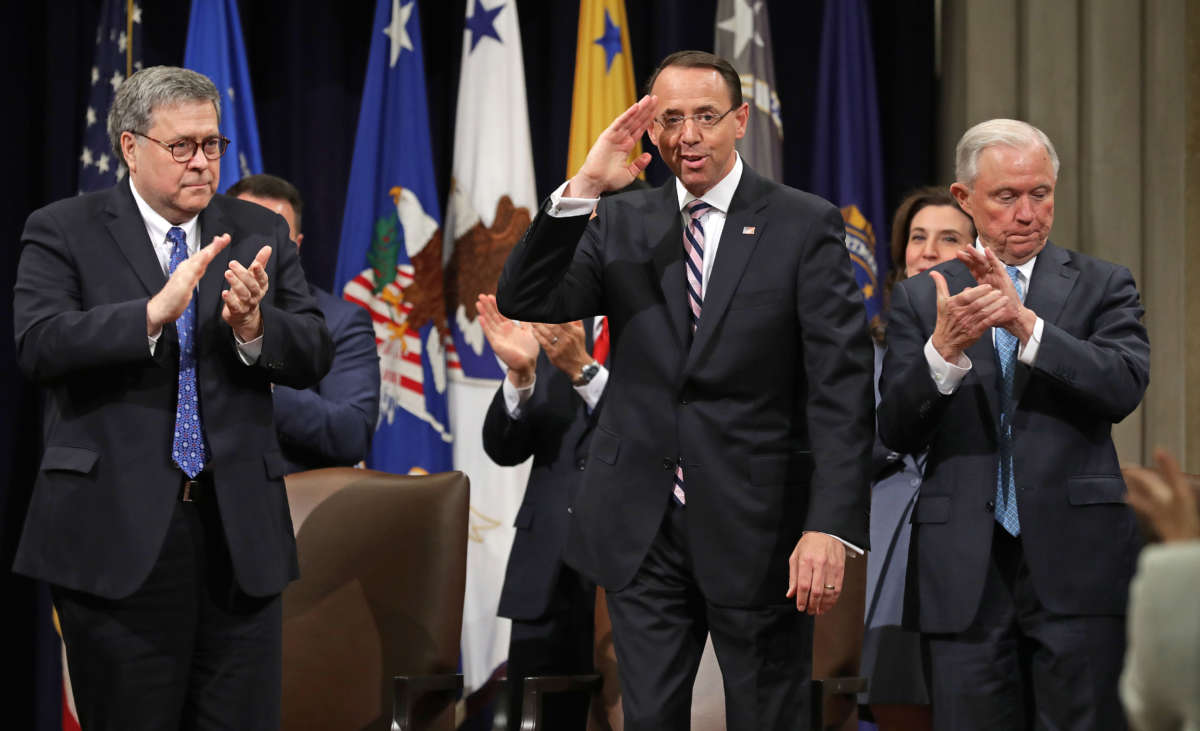Democrats on the House Judiciary Committee are investigating whether officials in the Department of Justice (DOJ) during the Trump administration engaged in a “shadow operation” against individuals perceived to be adversaries of the former president.
House Judiciary chair Rep. Jerry Nadler (D-New York) will focus the committee’s inquiry into who at the Justice Department might have approved the subpoenas for the phone records of a number of individuals, including at least two Democratic lawmakers and their families, during the Trump years.
Earlier this month, it was revealed that the phone data for Reps. Adam Schiff (D-California) and Eric Swalwell (D-California) were obtained by the DOJ in 2017 and 2018. The phone records of some of their aides and family members were also obtained by the department, ostensibly as part of an investigation into leaks to the press that had been embarrassing to the White House and former President Donald Trump.
The investigation at the DOJ began during the tenure of former Attorney General Jeff Sessions, but was eventually dropped. After William Barr became attorney general, the inquiry was resumed, but no evidence of any wrongdoing by the two lawmakers was ever found.
Both Schiff and Swalwell were ardent critics of the Trump administration.
Barr and Sessions have both denied knowing about the subpoenas, which raises a bigger question: how did the investigation get approved in the first place? Such inquiries, if they involve higher-profile individuals (including members of Congress) would ordinarily require approval from the higher levels of the DOJ, including the attorney general. However, in saying that they were unaware of the subpoenas, Sessions and Barr have opened up the possibility that someone else at the department may have approved them illegally, which would make that person (or persons) subject to criminal prosecution for their actions.
Beyond the seizure of lawmakers’ phone data for an investigation into the leaks, it has been revealed that Trump’s DOJ also subpoenaed the phone records of several members of the media in 2020, including reporters from The Washington Post, The New York Times and CNN.
Not everyone is buying into the claims by Sessions and Barr that they did not know about these actions by the Justice Department. After details of the subpoenas were first made public, Speaker of the House Nancy Pelosi (D-California) expressed skepticism over the denials issued by the former attorneys general.
“To say that they didn’t know anything about it is beyond belief,” Pelosi said in an interview. “We will have to have them come under oath to testify about that.”
“How could it be that there could be an investigation of members in the other branch of government and the press and the rest too and the attorneys general did not know?” Pelosi added.
Join us in defending the truth before it’s too late
The future of independent journalism is uncertain, and the consequences of losing it are too grave to ignore. To ensure Truthout remains safe, strong, and free, we need to raise $31,000 in the next 48 hours. Every dollar raised goes directly toward the costs of producing news you can trust.
Please give what you can — because by supporting us with a tax-deductible donation, you’re not just preserving a source of news, you’re helping to safeguard what’s left of our democracy.
